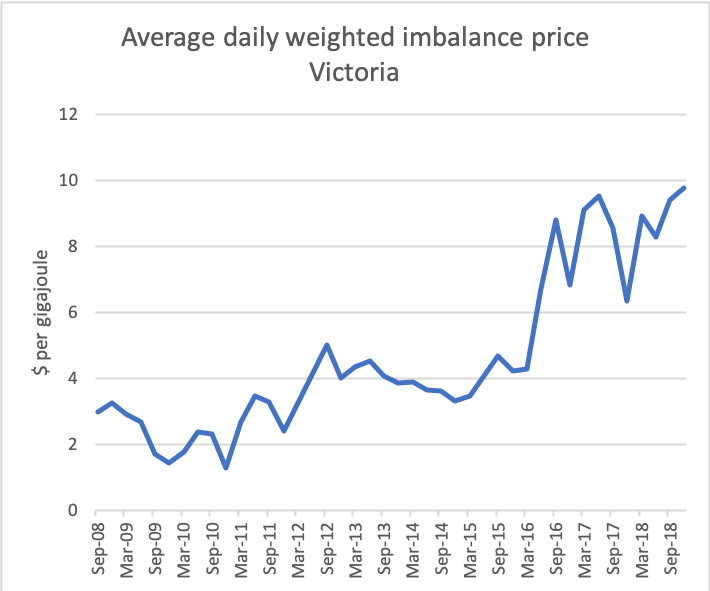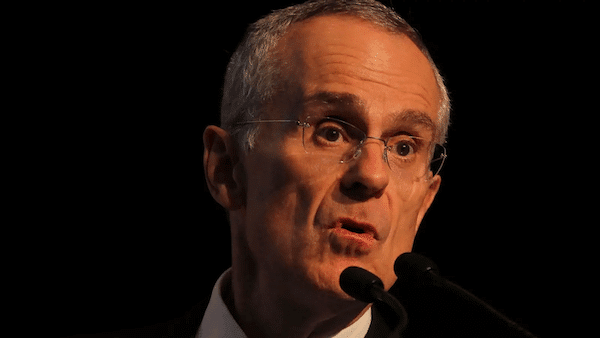Investor News
ACCC boss slams gas suppliers for price woes
An article in yesterday's 'Age' by Cole Latimer covers accusations by ACCC boss, Rod Sims, that the gas industry has treated domestic gas customers with contempt as they chase exports.
Former federal Resources Minister Martin Ferguson is blaming government policies for constraining supply.
Let's take a look at what's happening and the potential opportunity this has opened up for ECT.
The background to this issue is, of course, the dramatic increase in gas prices in recent years.

The article highlights the blame game being played and the biased narratives being put forth.
Sims blames the suppliers for focusing on exports, reducing domestic availability.
Ferguson blames government bans on gas exploration and fracking, preventing new supplies that would help lift domestic availability.
Both are right.
But what the article fails to mention is the impact of the increased gas price on electricity costs. It's a double-whammy for manufacturers (and anyone else that pays an electricity bill).
The below chart shows natural gas flows through the Australian economy for 2016-17.

The manufacturing sector used 390 petajoules. Back in 2016, the price of gas was as low as $4.31 per gigajoule. It's currently around $9.80 per gigajoule.
That's an impost on our manufacturing sector of $2.14 billion.
The impact of the increased gas price on electricity costs also flows through to manufacturing.
Gas-fired electricity has maintained its 20% share of our energy mix over recent years.
Electricity generation used 366 petajoules in 2016-17. The gas price increase from $4.31 in March 2016 to $9.55 in December 2017 is equivalent to an annualised increase of $2 billion for gas-fired electricity producers.
This adds to the cost of each megawatt-hour, causing gas-fired generators to increase their bid in the electricity market.
And given the wholesale electricity market price is frequently set by gas-fired generator bids, higher gas prices propagate across the electricity market.
It's a mess. And the proposed solutions don't seem to be able to bring down the cost of either gas or electricity by more than a token amount. The return to affordable gas or electricity seems unlikely.
The Opportunity
But this mess has presented ECT with an opportunity to service a 'forgotten' market sector.
Various industries rely on utility-scale heat to produce hot water or steam. Timber dryers, abattoirs and dairy processors to name a few.
Here in our home state of Victoria, the fuel of choice was brown coal briquettes. Gas was typically used by consumers located close to gas pipelines. Biomass such as woodchips has been used where available.
In August 2014, the briquette plant closed. A few years later the stockpile of remaining briquettes was gone. That eliminated a high-energy, low moisture fuel source.
Businesses were forced to switch to alternatives. Those close to gas pipelines paid to connect. Those with access to biomass modified or replaced their boilers.
Unfortunately, those that switched to natural gas found themselves faced with a doubling of the gas price, threatening viability.
Those with the ability to use biomass such as woodchips and other agricultural waste ran into a whole new set of challenges, from irregular supply due to increased demand and seasonal variability, through to lower efficiency and boiler fouling due to high moisture and problematic ash components.
Some consumers have resorted to importing black coal from New South Wales.
And while wind and solar are being deployed at record rates for electricity generation, they're not suitable for producing utility-scale process heat, leaving this market sector exposed.
We started receiving calls to purchase Coldry from our pilot plant.
This coincided with plans to expand the capacity of our pilot plant to increase research capability.
The Coldry pilot plant was never intended to sell commercial product because its scale was too small to cost-effectively compete with briquettes or gas. But given the doubling of the gas price and the closure of the briquette plant, the local market economics changed. Coldry was now cheaper than gas.
Now, it may sound simple enough to just produce and sell our product, but there's a bit more to it.
To really make the most of the opportunity we had to assess the market and plan the logistics. It's not a huge market by global standards, but if we were to fill the gap, starting with product from our pilot plant and potentially building a commercial-scale plant, we needed to get the offering right.
The market consists of a broad range of customers with varying types of boiler systems. No two seem to perform the same.
We embarked on a test program with a few potential customers to profile the performance of our Coldry solid fuel and benchmark it against alternatives.
We confirmed that Coldry was indeed a perfect fit for this market, delivering increased efficiency and lower total cost of operation.
We also noted most businesses saw boiler operation as an unpleasant distraction from their core business. They just want hot water or steam. So, we saw the opportunity to offer turnkey 'steam' and 'boiler' packages, leading us to assemble a team of experts to explore this new business channel.
The result was the signing of our first customer last August. A 5-year deal worth $1.3 million.
Coldry is a fantastic solution for improving energy affordability for Victorian and Tasmanian businesses hit by rising gas and electricity prices.
Coldry solid fuel gives consumers the option to supplement or replace biomass, helping increase efficiency, reduce CO2 intensity and manage variations in biomass availability.
So, while Rob Sims and Martin Ferguson battle it out over who's to blame for shutting down manufacturing, we're working to deliver a practical solution to help them keep their doors open.
Read more...
'Sense of contempt': ACCC boss slams gas suppliers

5 March 2019 | The Age | Cole Latimer
Competition tsar Rod Sims has accused the gas industry of treating the domestic market with "some sense of contempt" and warned more manufacturers could go under unless wholesale gas prices softened.
Speaking at the Australian Domestic Gas Outlook Conference on Tuesday, the Australian Competition and Consumer Commission (ACCC) chairman said the gas industry had brought government intervention on itself and its behaviour put more businesses at risk of failure...